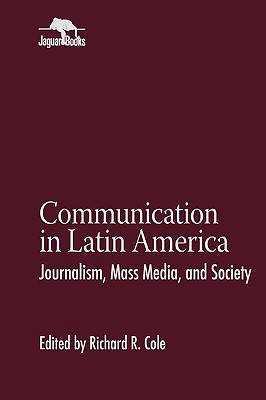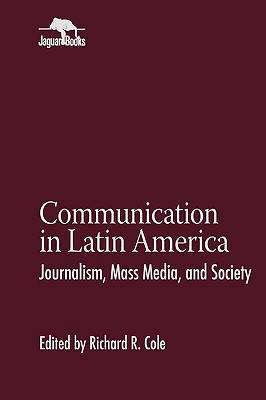
- Afhalen na 1 uur in een winkel met voorraad
- In januari gratis thuislevering in België
- Ruim aanbod met 7 miljoen producten
- Afhalen na 1 uur in een winkel met voorraad
- In januari gratis thuislevering in België
- Ruim aanbod met 7 miljoen producten
Communication in Latin America
Journalism, Mass Media, and Society
Omschrijving
In Communication in Latin America: Journalism, Mass Media, and Society, editor Richard R. Cole has assembled a selection of articles that explore these issues. The book focuses on journalism, given the traditional strength of the press in Latin America. The twelve comprehensive essays-written exclusively for this publication-examine either an aspect of the mass media in the region or the media in a particular country during a number of stages of its political development.
Divided into two parts, the book begins with a thorough overview of the state of mass communication in the entire region. Articles in the first section focus on broad issues such as the changing role of women in the media; the value of professional organizations, including colegios, in journalism; and the usefulness of propaganda in effecting political change. Essays in the second section explore situations in individual countries, including freedom of the press in Mexico and Chile, and the Argentine media's struggle to define its role under the new democratic government. Cole concludes the book with his forecast of the future of mass communication in Latin America.
Communication in Latin America: Journalism, Mass Media, and Society is a valuable tool for students of international communication and an excellent supplement for classes in Latin American studies, anthropology, and political science.
Specificaties
Betrokkenen
- Uitgeverij:
Inhoud
- Aantal bladzijden:
- 256
- Taal:
- Engels
- Reeks:
Eigenschappen
- Productcode (EAN):
- 9780842025584
- Verschijningsdatum:
- 1/08/1997
- Uitvoering:
- Paperback
- Formaat:
- Trade paperback (VS)
- Afmetingen:
- 152 mm x 233 mm
- Gewicht:
- 530 g

Alleen bij Standaard Boekhandel
Beoordelingen
We publiceren alleen reviews die voldoen aan de voorwaarden voor reviews. Bekijk onze voorwaarden voor reviews.








